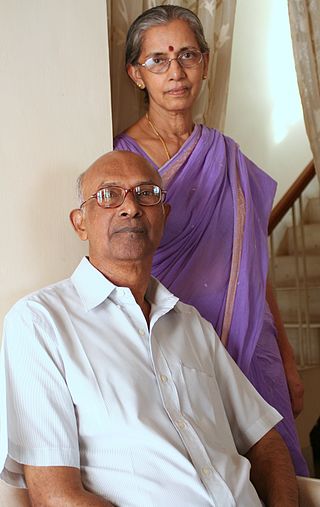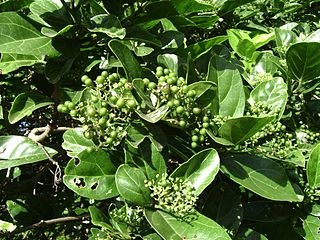
The University of Madras is a public state university in Chennai, Tamil Nadu, India. Established in 1857, it is one of the oldest and among the most prominent universities in India, incorporated by an act of the Legislative Council of India under the British government.

Tambaram is a city located within the Chennai Metropolitan Area in the Indian State of Tamil Nadu. The city is governed by Tambaram City Municipal Corporation.

Madras Medical College (MMC) is a public medical college located in Chennai, Tamil Nadu, India. Established in 1835, it is one of the oldest medical colleges in India, as well as in Asia.

Madras Christian College (MCC) is a liberal arts and sciences college in Chennai, India. Founded in 1837, MCC is one of Asia's oldest extant colleges. The college is affiliated to the University of Madras but functions as an autonomous institution from its main campus in Tambaram, Chennai.
Egmore is a neighbourhood of Chennai, India. Situated on the northern banks of the Coovum River, Egmore is an important residential area as well as a commercial and transportation hub. The Egmore Railway Station was the main terminus of the Madras and Southern Mahratta Railway and later, the metre gauge section of the Southern division of the Indian Railways. It continues to be an important railway junction. The Government Museum, Chennai is also situated in Egmore. Other important institutions based in Egmore include the Government Women and Children's Hospital, the Tamil Nadu State Archives and the Tamil Nadu Archaeology Department. The Wesley Church, Egmore is the oldest church of the region.

Robert Wight was a Scottish surgeon in the East India Company, whose professional career was spent entirely in southern India, where his greatest achievements were in botany – as an economic botanist and leading taxonomist in south India. He contributed to the introduction of American cotton. As a taxonomist he described 110 new genera and 1267 new species of flowering plants. He employed Indian botanical artists to illustrate many plants collected by himself and Indian collectors he trained. Some of these illustrations were published by William Hooker in Britain, but from 1838 he published a series of illustrated works in Madras including the uncoloured, six-volume Icones Plantarum Indiae Orientalis (1838–53) and two hand-coloured, two-volume works, the Illustrations of Indian Botany (1838–50) and Spicilegium Neilgherrense (1845–51). By the time he retired from India in 1853 he had published 2464 illustrations of Indian plants. The standard author abbreviation Wight is used to indicate this person as the author when citing a botanical name.

Perungalathur is a neighborhood in the city of Tambaram, South Chennai, situated within the Chennai Metropolitan Area, Tamil Nadu, India.

Philip Furley Fyson (1877–1947) was a botanist and educator who worked in India. He is noted as the author of the first illustrated volumes on the flora of the South Indian hills. The Fyson prize is instituted in his honour by the Presidency College, Chennai for work in the area of Natural science.

Kattungal Subramaniam Manilal is an Emeritus of the University of Calicut, a botany scholar and taxonomist, who devoted over 35 years of his life to research, translation and annotation work of the Latin botanical treatise Hortus Malabaricus. This epic effort brought to light the main contents of the book, a wealth of botanical information on Malabar that had largely remained inaccessible to English-speaking scholars, because the entire text was in the Latin language.
The Indian Association for Angiosperm Taxonomy (IAAT) was established in 1990. The IAAT is headquartered at the Department of Botany, Calicut University, Kozhikode, India. The IAAT is affiliated to the International Association for Plant Taxonomy. It promotes Angiosperm taxonomy in India and acts as a gathering organisation for Angiosperm taxonomists.

C. T. Krishnamachari was Head of the Department of Philosophy at Madras Christian College from 1958 to 1969 and the most prominent among contemporary Indian philosophers who paid close attention to psi phenomena. Chari published extensively on extremely diverse topics, such as logic, linguistics, information theory, mathematics, quantum physics, philosophy of mind, and, of course, psi research.

MCC Higher Secondary School is located in Chetpet, Chennai, Tamil Nadu, India. It was founded in 1835 and has a long, and illustrious history, including having produced many citizens of note. It is also known for its large campus in the center of the city, with large playgrounds, verdant gardens, and various facilities.

Premna serratifolia is a species of small tree or shrub in the family Lamiaceae. It blooms and fruits between May and November. During flowering season, it attracts a large number of butterflies and bees.

Edavalath Kakkat Janaki Ammal (formally known as Janaki Ammal) (4 November 1897 – 7 February 1984) was an Indian botanist who worked on plant breeding, cytogenetics and phytogeography. Her most notable work involved studies on sugarcane and the eggplant (brinjal). She also worked on the cytogenetics of a range of plants and co-authored the Chromosome Atlas of Cultivated Plants (1945) with C.D. Darlington. She took an interest in ethnobotany and plants of medicinal and economic value from the rain forests of Kerala, India. She was awarded Padma Shri in 1977.
MCC Campus Matriculation Higher Secondary School co-educational which offers education from nursery level Matriculation level that is part of Madras Christian College. The School located in East Tambaram, Chennai, Tamil Nadu, India. The school celebrated its 32nd Anniversary on 6 July 2016 graced by His Excellency Dr. Konijeti Rosaiah Governor of Tamil Nadu.
Chirayathumadom Venkatachalier Subramanian, popularly known as CVS, was an Indian mycologist, taxonomist and plant pathologist, known for his work on the classification of Fungi imperfecti, a group of fungi classified separately due to lack of specific taxonomic characteristics. He authored one monograph, Hyphomycetes: An Account of Indian Species, Except Cercosporae and three books, Hyphomycetes, taxonomy and biology, Moulds, Mushrooms and Men and Soil microfungi of Israel, besides several articles published in peer-reviewed journals. He was a recipient of many honours including the Rafi Ahmed Kidwai Award of the Indian Council of Agricultural Research, the Janaki Ammal National Award of the Government of India and seven species of fungi have been named after him. The Council of Scientific and Industrial Research, the apex agency of the Government of India for scientific research, awarded him the Shanti Swarup Bhatnagar Prize for Science and Technology, one of the highest Indian science awards, in 1965, for his contributions to biological sciences.
R. W. Alexander Jesudasan is an Indian entomologist credited with the discovery of more than 60 species of whiteflies in South India. He was a prominent educationist and served as Principal of Madras Christian College (2009–2020) and have been part of many education-related committees including NAAC Peer Team.

Mamiyil Sabu formerly Head of the Department of Botany, University of Calicut and currently working as CSIR-Emeritus Scientist at Malabar Botanical Garden and Institute for Plant Sciences, Kozhikode district, Kerala, India. He worked for over 37 years on the research of gingers, which include families such as Cannaceae, Marantaceae, Zingiberaceae, Heliconiaceae, Costaceae, Musaceae etc. A comprehensive work on these groups have been taken after a gap of 125 years, which resulted in the discovery of several new species and rediscovery of many species after 155 years.
Edward Barnes was a professor of chemistry at the Madras Christian College and also an amateur botanist. He described several new species of Sonerila, Impatiens and Arisaema from the hills of Tamil Nadu.












